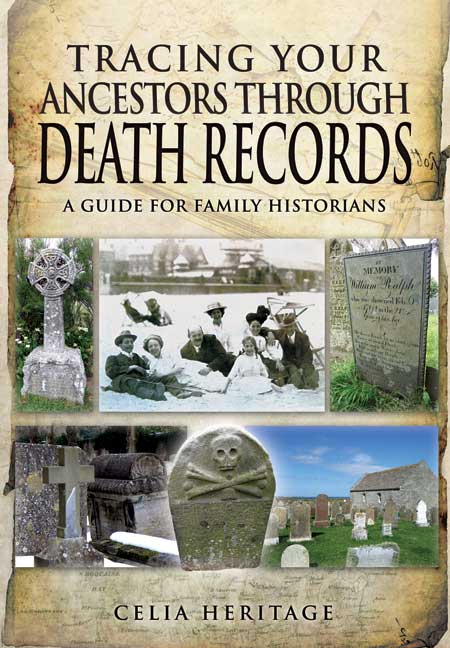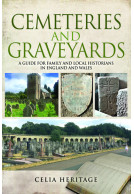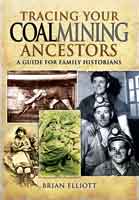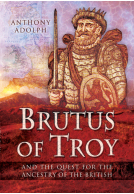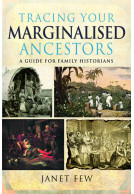Tracing Your Ancestors through Death Records (ePub)
A Guide for Family Historians
Imprint: Pen & Sword Family History
File Size: 12.3 MB (.epub)
ISBN: 9781783376469
Published: 5th February 2013
Of all family history sources, death records are probably the least used by researchers. They are, however, frequently the most revealing of records, giving a far greater insight into our ancestors' lives and personalities than those records created during their lifetime.
Celia Heritage leads readers through the various types of death records, showing how they can be found, read and interpreted – and how to glean as much information as possible from them. In many cases they can be used as a starting point for developing your family history research into other equally rewarding areas.
This highly readable handbook is packed with useful information and helpful research advice. In addition, a thought-provoking final chapter looks into the repercussions of death – its effects on the surviving members of the family and the fact that a premature death could sometimes affect the family for generations to come.
Family history has been Celia Heritage's passion since she first began tracing her own family tree as a teenager. After studying at the Institute of Heraldic and Genealogical Studies, she gained a distinction in the Higher Certificate in Genealogy and now runs her own Kent-based company (www.heritagefamilyhistory.co.uk) providing family history research services and courses. She has recently adapted her popular beginners' evening class Building Your Family Tree into an e-course, making it available to students everywhere, and more advanced modules are currently being added. Celia also specializes in tracing living relatives and is often to be heard on BBC local radio.
Read Celia's latest blog: http://deathrecordsblog.wordpress.com
Referenced in Q&A with Emma Jolly: What can you tell me about my great grandfather?
WDYTYA? Magazine, April 2021
Author article as featured by
Family Tree, June 2018
As seen in.
Rye and Battle Observer
A useful reference book full of invaluable information reinforced with examples, case studies and research tips punctuated throughout with pointers to both online and archival sources.
Essex Family Historian
This latest release will no doubt provide much welcome information to many researchers.
BBC Who Do You Think You Are?
Very useful. Helpful case studies throughout the work. These studies provide a great way of illustrating the type of information a given record source can provide. Anyone with UK ancestry will find this book of interest as a very useful guide to exploring the records of death in depth.
Society of Australian Geneologists
In giving an insight into ancestors’ lives, the author also considers the effects of death on surviving families and the genetic aspects and importance of the causes of death. There is a useful bibliography and an appendix of addresses for further research.
Bristol and Avon Family History Society
How to find out more about your forebears using these under-utilised records.
Your Family History
Her focus on historical context makes the book an interesting read.
Federation of Family History Societies
The book is illustrated with copies of documents found during the author’s hunt for her own family history. Online searching is emphasized, accompanies by lists of useful websites. But also described are books that help locate and interpret date.
The information in this book will be most useful to those searching for antecedents in England but sources of date in Scotland, Ireland and Wales are discussed where those differ from English laws and documents. She includes sources for North America but these are not presented with the same depth.
‘Killing off’ your ancestors is an essential part of family history research when you can, ironically, unearth a surprising amount about their lives. Family Tree author Celia Heritage’s excellent guide to the records created by an individual’s demise – and what these records can tell you – feels like a long – overdue visit by an old family friend. We all know we should be buying death certificates to tie up those loose ends, but they are often neglected as we get caught up in the joyous discovery of new marriages and births. But in doing so, as Celia genially explains, we miss out on a huge aspect of our ancestors’ lives and the opportunities for further research in sometimes unexpected places. But it’s not just the value of death certificates tat are covered here; she also examines common brick walls and pitfalls, from mistakes in the General Register Office Index to aliases and name – changes.
Family tree, March 2013
She explains how to get the most from burial records and casts her expert net over gravestones, memorial inscriptions, inquest reports, wills and other probate records, obituaries and more. It is packed with case studies, illustrations and advice to reinvigorate your research. Pretty much all you need to know about death records, with simple explanations and problem – solving tips, I wonder why this has never been done in this way before. Authoritative and practical, it will prove a big help to beginners and battle-weary genealogists alike and Celia also has a book blog at deathrecordsblog.wordpress.com.
This volume looks at the common pitfalls in researching ancestors – you’d think that a death certificate was common throughout our histories, but Celia unveils different types of death records and explains how in some cases they contain far more information than we would expect to find. Quite often we forget that a death record may be entered under the person’s married name rather than their maiden name – all of these things are covered in Celia’s excellent treatise which is both readable and illuminating, and another vital tool to enable you to get the best out of available records. Superb.
Books Monthly
Celia Heritage leads readers through the various types of death records, showing how they have be found, read and interpreted - and how to glean as much information as possible from them. In many cases they can be used as a starting point for developing your family research into other equally rewarding areas.
Kent FHS Journal
This highly readable handbook is packed with useful information and helpful research advice. In addition, a thought-provoking final chapter looks into the repercussions of death – its effects of the surviving members of the family and the fact that a premature death could sometimes affect the family for generations to come.
Many family history books cover death records, but in chapters or sections within a larger whole. A book that deals exclusively with the subject in much more depth is therefore very welcome. Of all the life events, death records are the ones most likely to be overlooked by researchers, and the author rightly reminds us that we should pay just as much attention to them as to births and marriages.
Who Do You Think You Are Magazine, January 2013
The book begins with the civil registration of deaths, then burial records of various kinds, followed by chapters on gravestones and inscriptions, inquests, newspapers and periodicals, wills and probate and that inevitable ‘miscellany’ chapter- indeed, there are always items in family history research that do not fit neatly into the general categories.
In this case, the author covers memorial cards and funeral records, tontines, heraldry, manorial court rolls and inquisitions post mortem. Each of these sources may interest only a minority of researchers, but many will find at least one item to be of use.
The final chapter is perhaps the most valuable, because it actually puts the official written records into context. It’s sometimes easy to forget while we get caught up in our research that the death of an individual would have led a significant – and sometimes catastrophic effect on surviving family members. There are useful case studies throughout the book and a good bibliography at the end, along with source notes, useful addresses and an index.
About Celia Heritage
A graduate of King’s College London, CELIA HERITAGE is a popular and respected lecturer in family history, regularly presenting at family history conferences both in the UK and abroad. Passionate about history since childhood, Celia gained a distinction in the Higher Certificate in Genealogy in 2008 and established her own Kent-based research company Celia Heritage Family History. For many years a tutor at the Institute of Heraldic and Genealogical Studies, she currently works for Ancestry ProGenealogists; the research wing of Ancestry.com.
Celia is also the author of ‘Tracing Your Ancestors Through Death Records' and ‘Researching and Locating your Ancestors’. A native of Kent, England, but with strong roots in Westmorland and Warwickshire, she has a great love of the countryside and exploring history on the ground.







